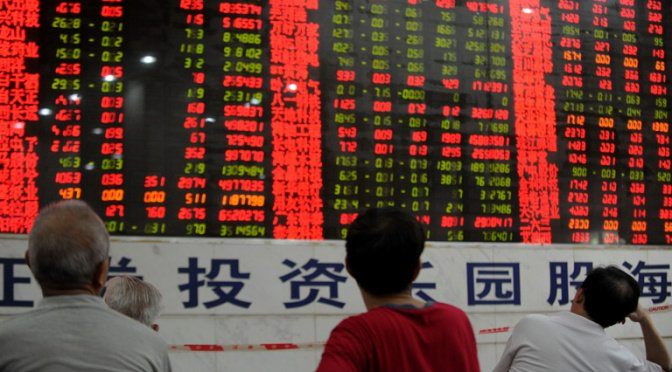MSCI adds China A-shares to emerging market index

MSCI announced it would add China A-shares to its MSCI Emerging Markets Index after rejecting China's previous three attempts. MSCI plans to add 222 Chinese shares to its Emerging Markets Index, with an initial weighting of 0.73 percent.
The full inclusion of domestic Chinese stocks in the widely tracked MSCI Emerging Markets Index could pull more than $400 billion of funds from asset managers, pension funds and insurers into mainland China's equity markets over the next decade, according to analysts.
Inclusion in the MSCI will provide "only a modest boost" to capital market reforms in China, especially in the areas of shareholder rights and debt market reform, but is unlikely to be a breakthrough, the Eurasia Group said in a statement.
MSCI’s decision opens a new front in investors’ long-running debate over whether, and how, to introduce domestic Chinese securities into international portfolios.
China’s equity and bond markets are the second- and third-largest in the world, respectively, yet foreigners hold less than 2 per cent of each. Three previous proposals by MSCI to include mainland stocks had been rebuffed by the index provider’s stakeholders — primarily large asset managers.
“International investors have embraced the positive changes in the accessibility of the China A-shares market over the past few years,” said Remy Briand, MSCI managing director and chairman of the MSCI index policy committee.
China’s inclusion, even on a limited scale, means that money managers will find the indexes more attractive. Many investors have also gravitated toward index funds that try to match the indexes directly, by buying all or nearly all of the stocks in them.
The Chinese government had long sought MSCI inclusion because it could help establish Shanghai and Shenzhen as global financial centers.
It could also push international money managers to pay more attention to corporate governance in China and demand that Chinese executives improve business practices, such as providing greater financial disclosure and limiting insider transactions.
"Regardless of the MSCI decision, Chinese equity markets still suffer from serious institutional shortcomings as well as heavy political influence," said Michael Hirson and Christopher Beddor from Eurasia Group.
While China received a greenlight from MSCI, another emerging market hopeful, Argentina, was not so lucky.
Despite Argentina’s successful sale of a 100-year government bond on Monday, the index company said it was not ready to upgrade the country to its emerging markets index because recent market reforms “needed to remain in place for a longer time period to be deemed irreversible.”

